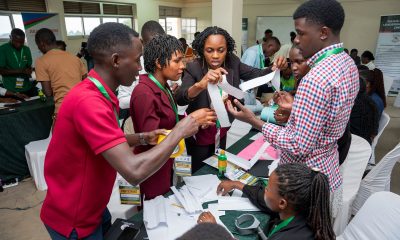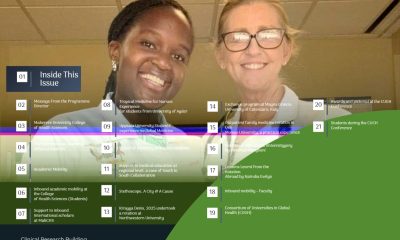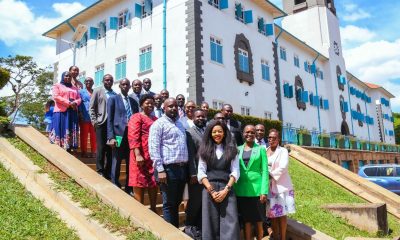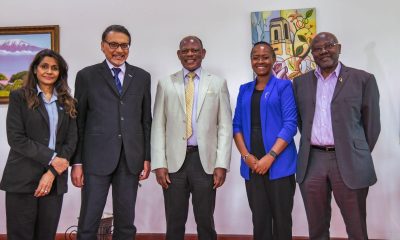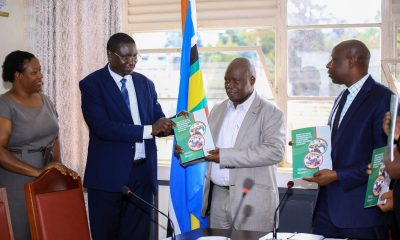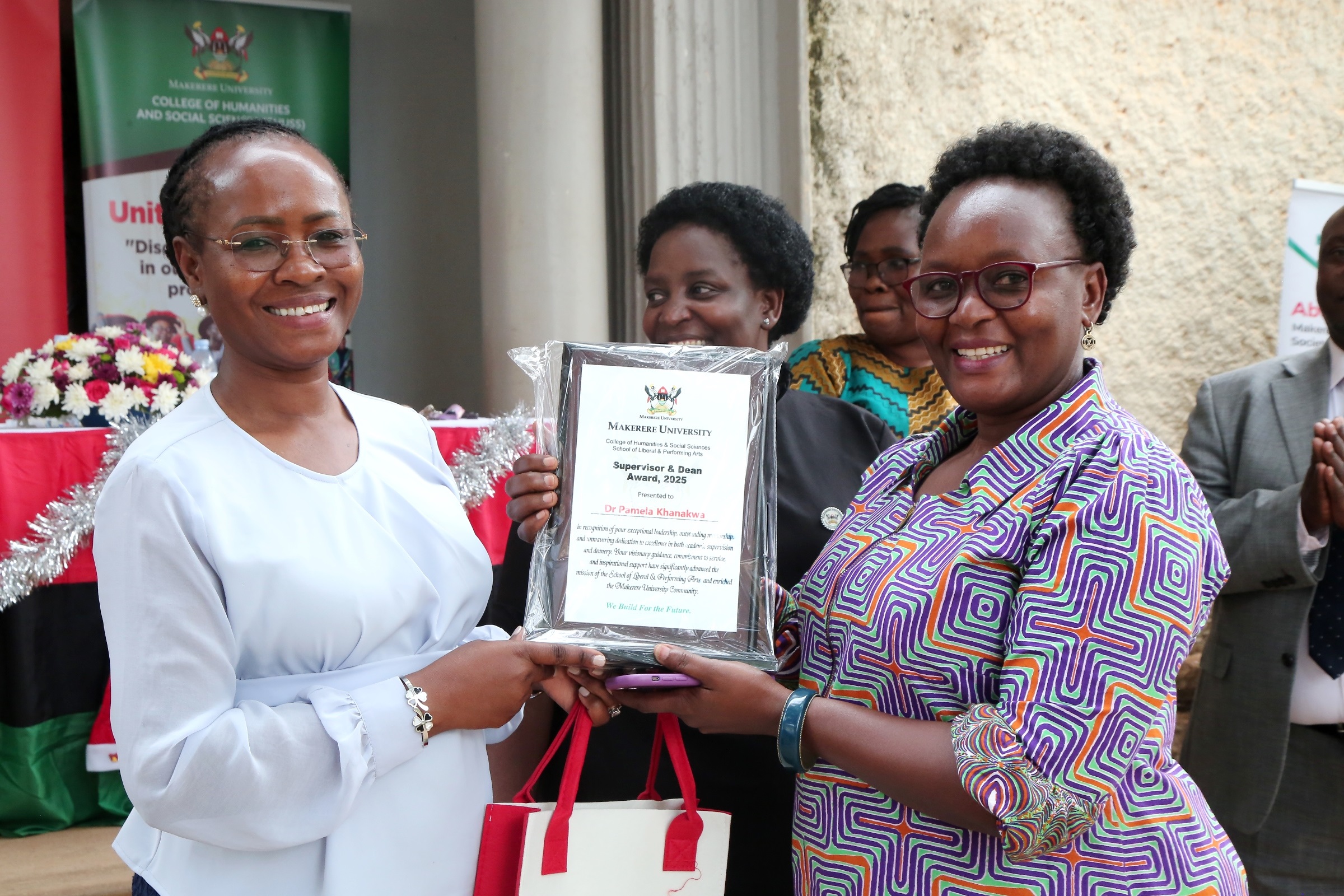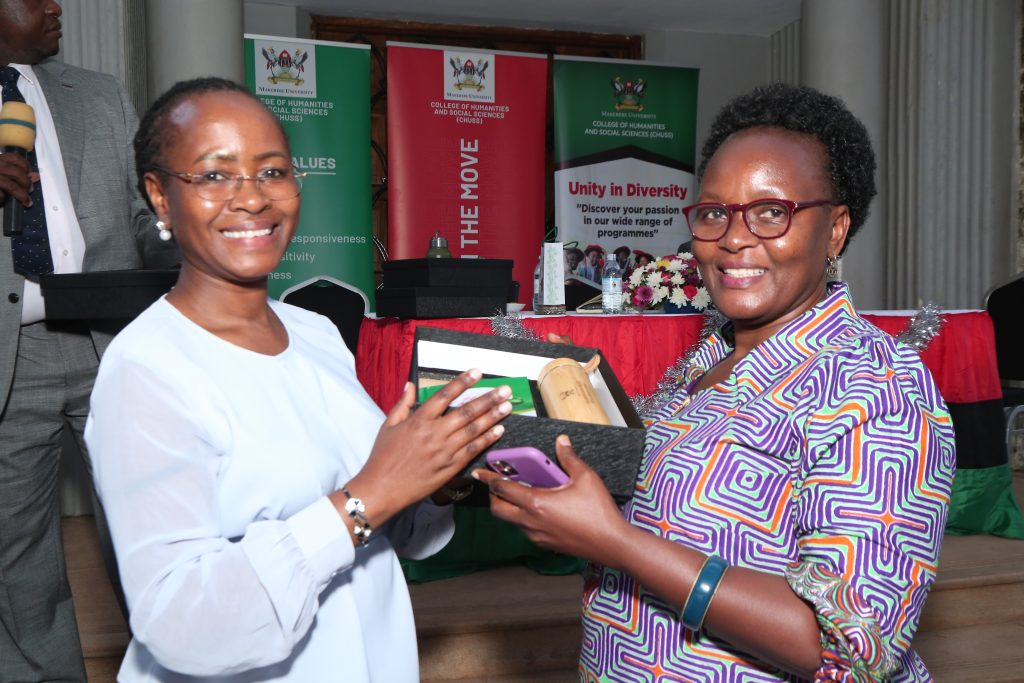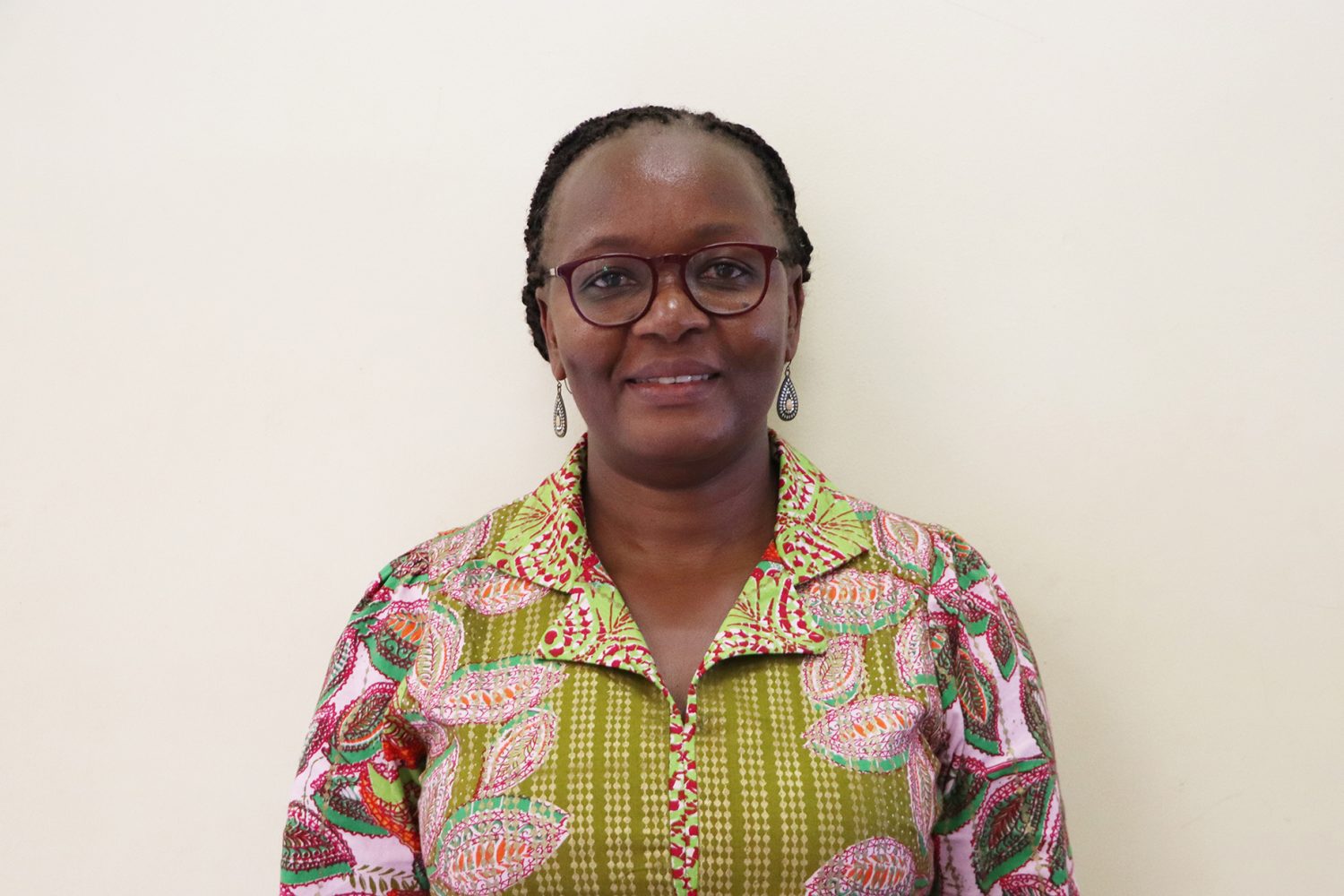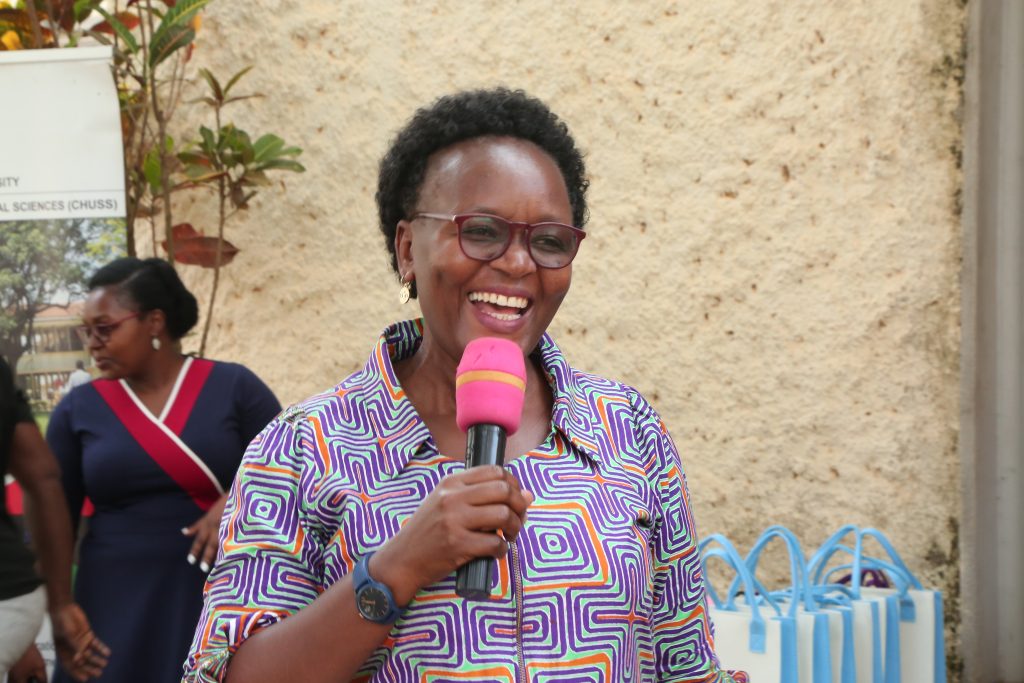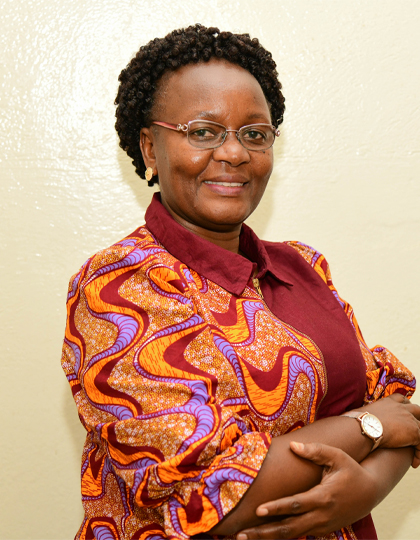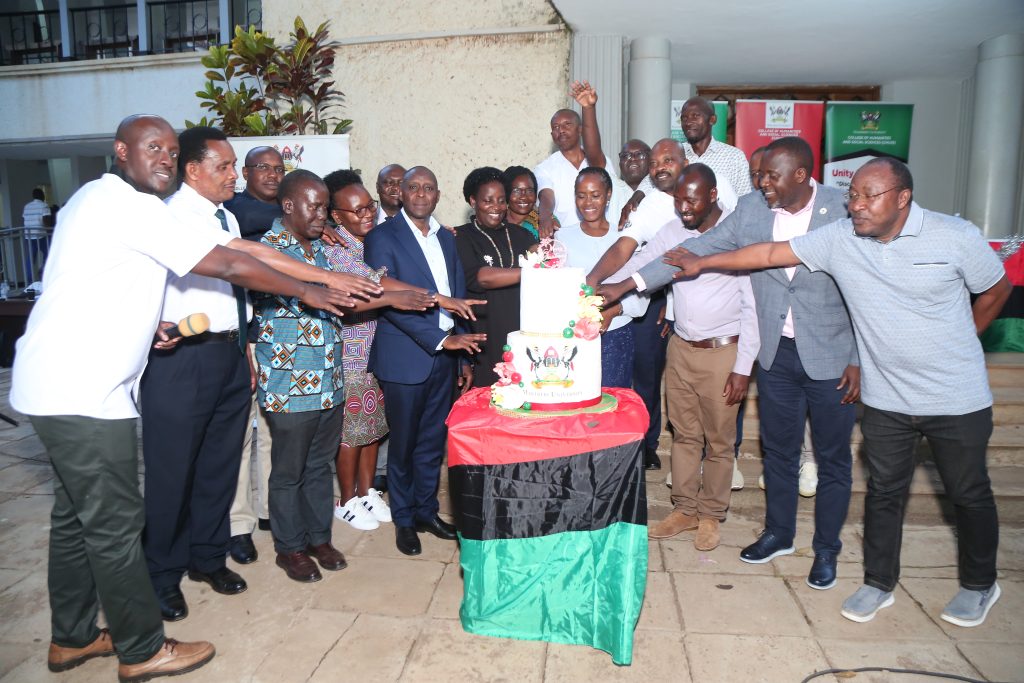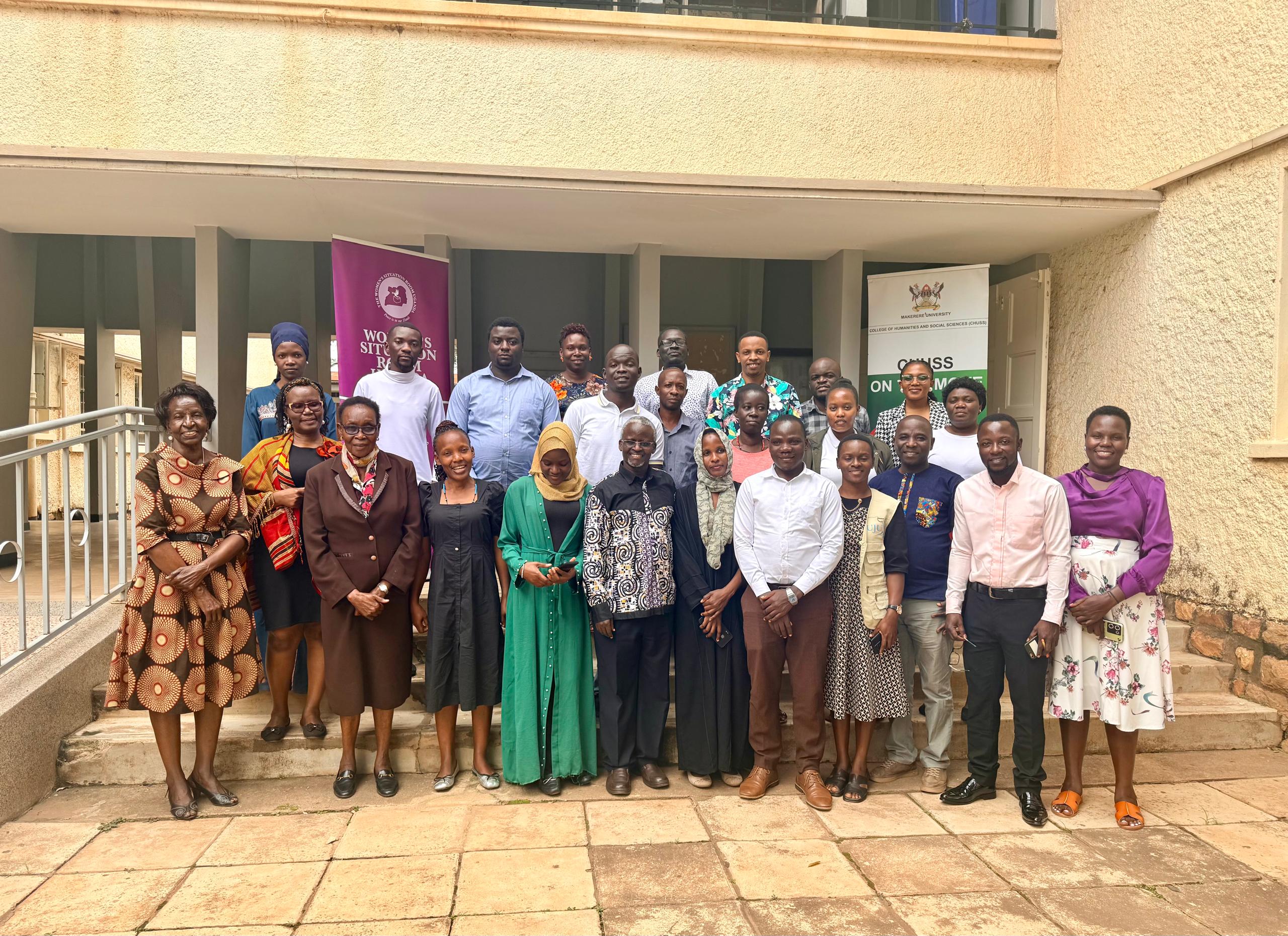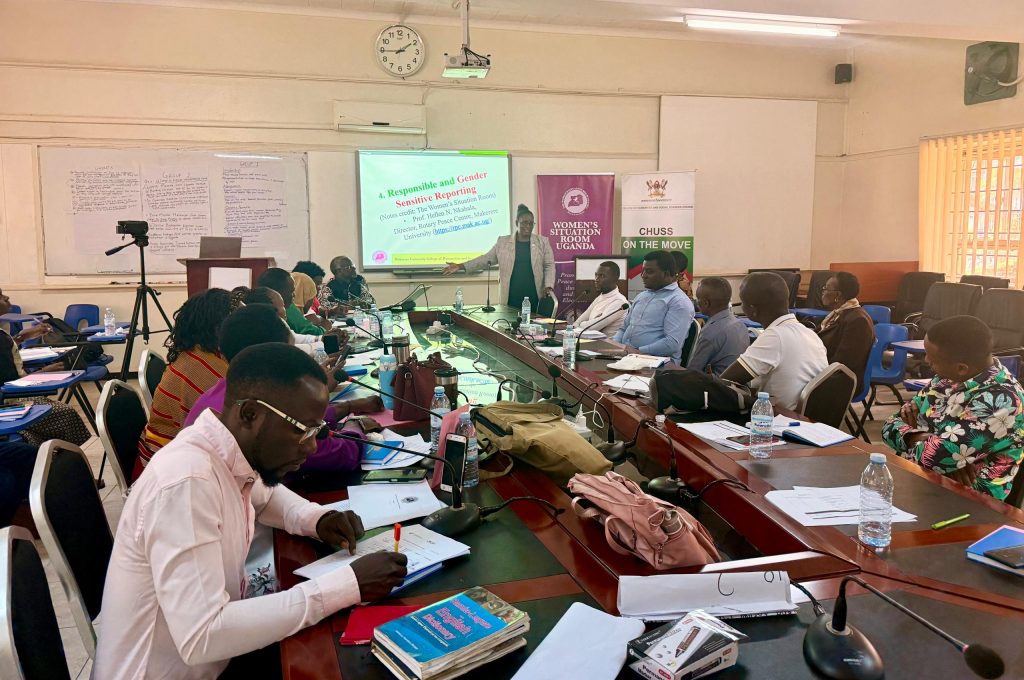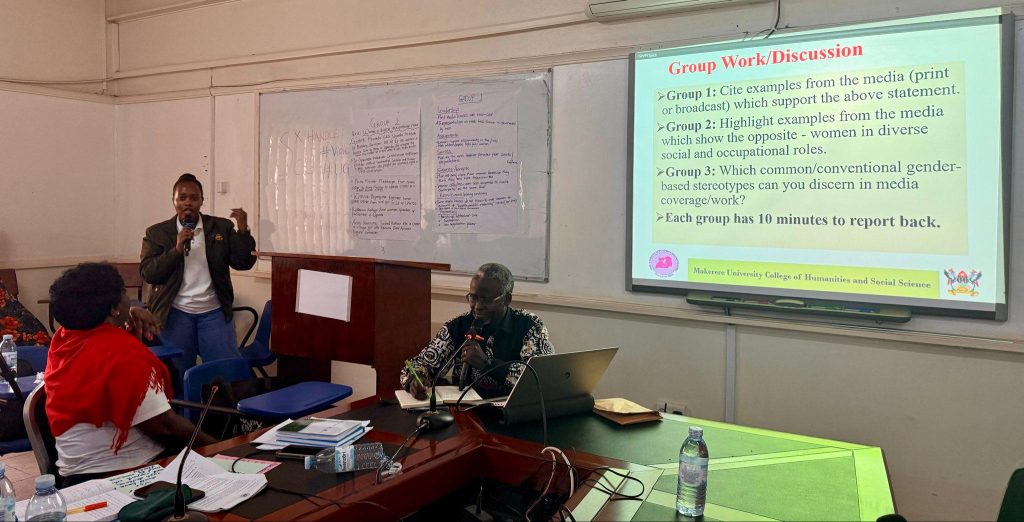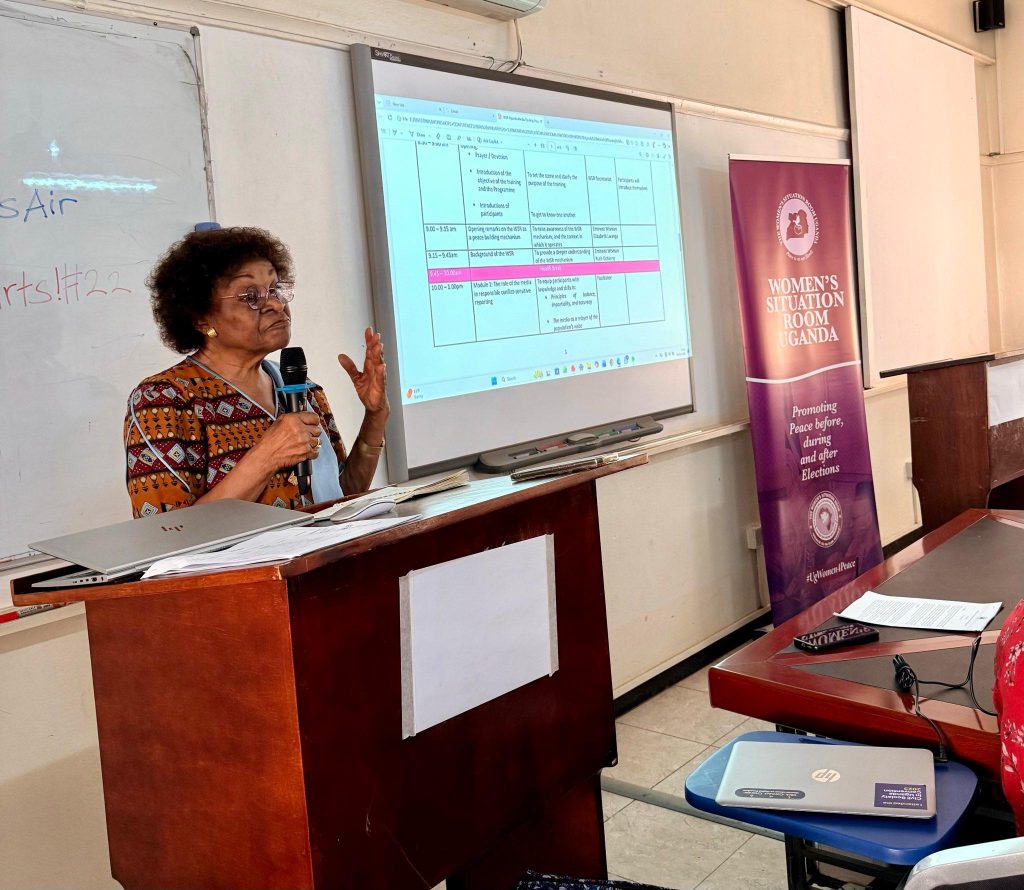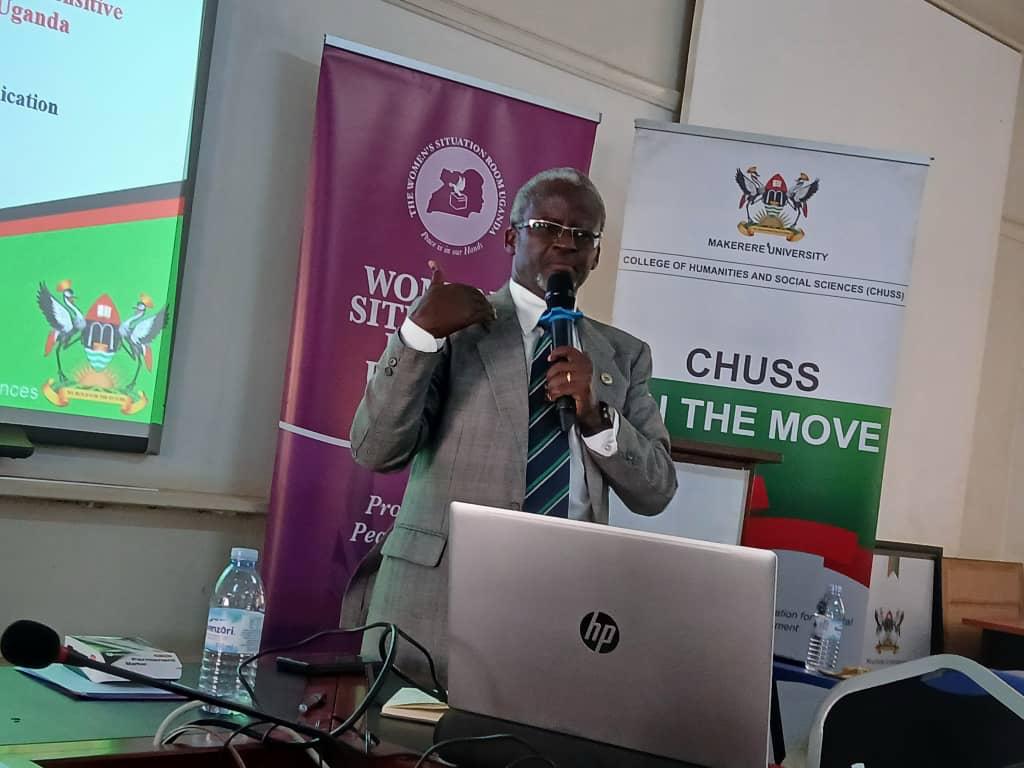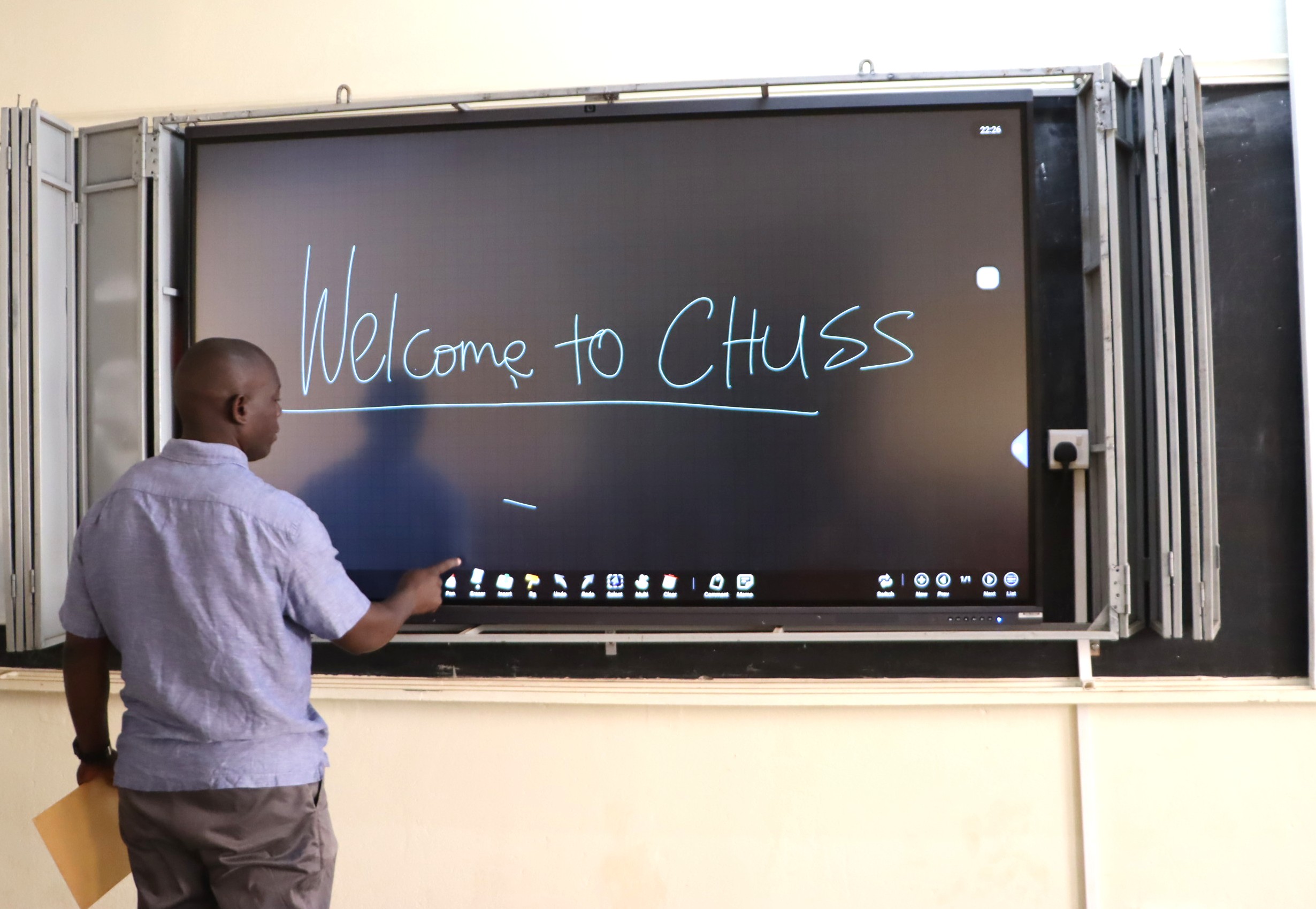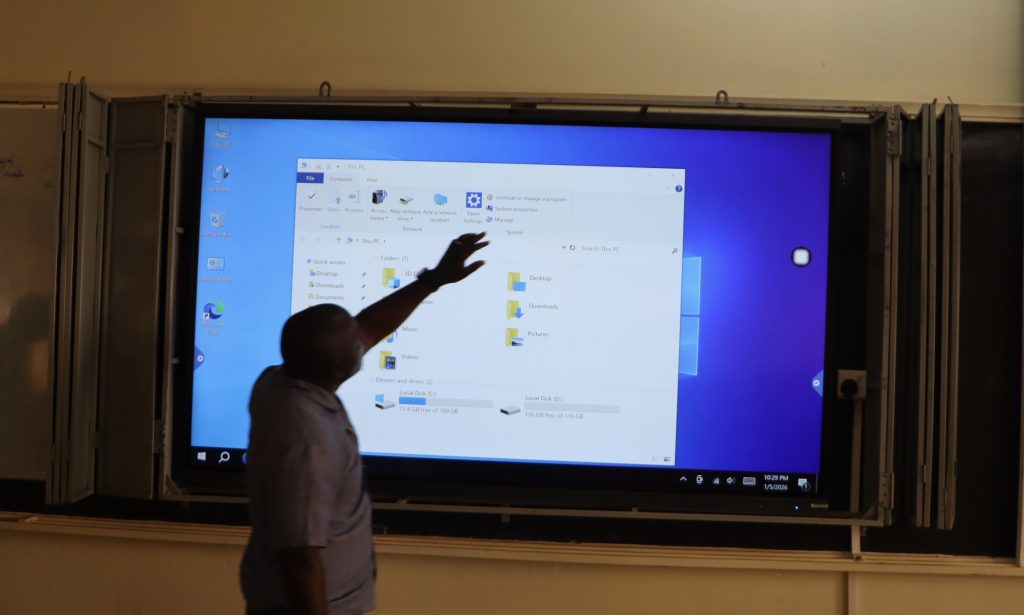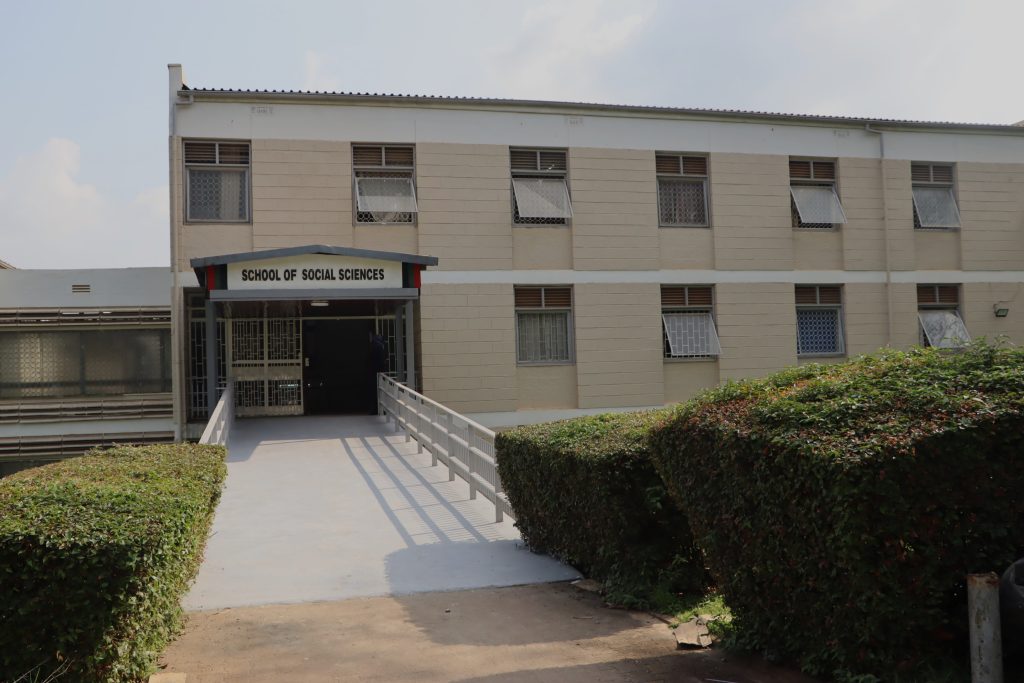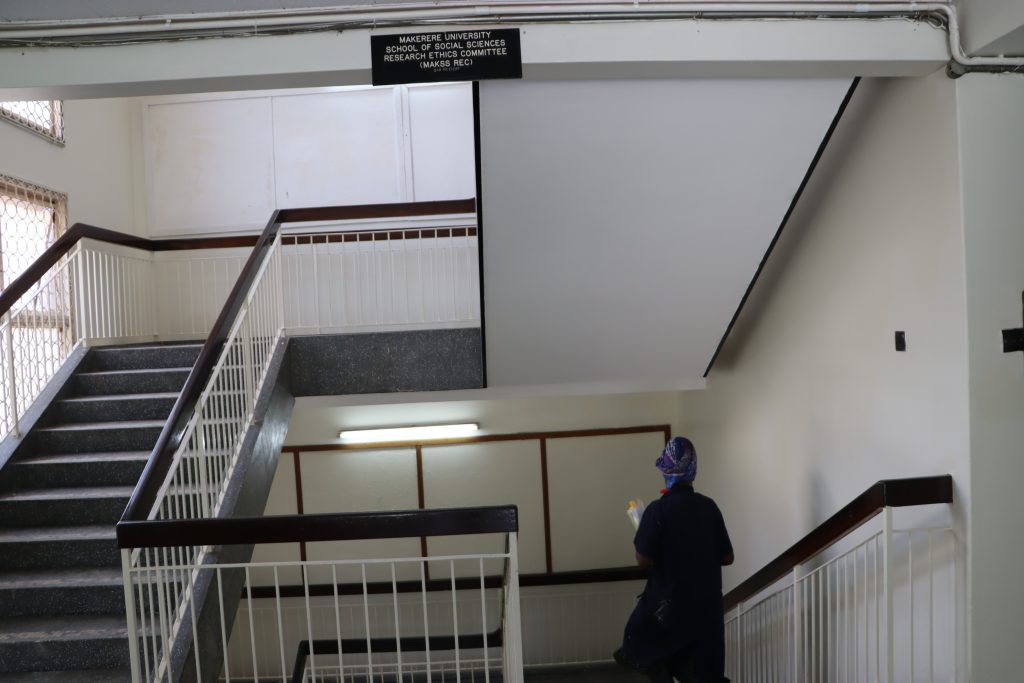The Mak-NUFU folklore project is a collaborative effort between the Department of Literature Makerere University and The Norwegian Programme for Development Research and Education (NUFU) aimed at establishing the role of Ugandan folklore as a repository of traditional wisdom.
The Mak-NUFU folklore project is a collaborative effort between the Department of Literature Makerere University and The Norwegian Programme for Development Research and Education (NUFU) aimed at establishing the role of Ugandan folklore as a repository of traditional wisdom.
One of these methods is through the promotion of cultural film production and research.

Crafting the Bamasaba is the first full-length feature (62mins) and the third film under this project, which aims at exploring the life and aspects “Beyond the physical cut” of the actual Imbalu initiation ceremony. Other titles before this were IN THEIR OWN VOICES: THE MADI OF UGANDA (44mins) and Imbalu: The heart of Masabaland (17mins)
 The premiere of this film, held at the Department of Food Science and Technology Conference hall was attended by University staff, representatives from the Uganda film industry and students. Notable among the staff were Prof David Bakibinga, former Deputy Vice Chancellor Finance and Administration, The Dean, Faculty of Arts Prof. Ssengendo, Dr. J. Kaahwa, deputy Dean Faculty of Arts and Mr. Adolu Otojoka.
The premiere of this film, held at the Department of Food Science and Technology Conference hall was attended by University staff, representatives from the Uganda film industry and students. Notable among the staff were Prof David Bakibinga, former Deputy Vice Chancellor Finance and Administration, The Dean, Faculty of Arts Prof. Ssengendo, Dr. J. Kaahwa, deputy Dean Faculty of Arts and Mr. Adolu Otojoka.
 Sr. Dr. Dominic Dipio, Head, Department of Literature welcomed everyone to the screening and thanked especially the students and staff for making time despite their busy exam schedules. She proceeded to give a brief background of the film, which was shot in Manafa, one of the districts comprising the land of the Bamasaba in Eastern Uganda. She then introduced the film and wished everyone a happy viewing.
Sr. Dr. Dominic Dipio, Head, Department of Literature welcomed everyone to the screening and thanked especially the students and staff for making time despite their busy exam schedules. She proceeded to give a brief background of the film, which was shot in Manafa, one of the districts comprising the land of the Bamasaba in Eastern Uganda. She then introduced the film and wished everyone a happy viewing.
 The film kicks of with the unmistakable sounds of the undulating drums and flutes that accompany ceremonies of the Bamasaba, most outstandingly the processions leading up to the Imbalu initiation ceremony. It then delves into the origins of this ceremony, which as tale has it, was introduced by a girl called Nabarwa, who set a condition of circumcision in order for her to accept any romantic advances from her Mumasaba lover man. Having fulfilled her condition, the two proceeded to live happily ever after and henceforth, the Imbalu tradition was born and accepted as a core cultural ingredient and distinct identity signifying the transition from boyhood to true manhood.
The film kicks of with the unmistakable sounds of the undulating drums and flutes that accompany ceremonies of the Bamasaba, most outstandingly the processions leading up to the Imbalu initiation ceremony. It then delves into the origins of this ceremony, which as tale has it, was introduced by a girl called Nabarwa, who set a condition of circumcision in order for her to accept any romantic advances from her Mumasaba lover man. Having fulfilled her condition, the two proceeded to live happily ever after and henceforth, the Imbalu tradition was born and accepted as a core cultural ingredient and distinct identity signifying the transition from boyhood to true manhood.
It then touched on practices preceding the actual initiation ceremony, which is marked by elaborate colorful processions that often move over 20kms in a single day! These see the ‘candidate’ move from village to village announcing his candidature to his uncles and soliciting and receiving gifts. The audience’s concentration on the feature was unmistakable as the air was often punctuated with sounds of laughter, awe, gasps and winces as some images quickly flashed by. On the other hand, some of the key informants’ interviews also didn’t escape the jeers and flashes of disdain from this attentive audience as some of their contributions, though from a cultural point of view trampled on modern day gender roles and relations.
This feature ends with comments from the key informants recognizing that times have indeed changed and some of accompanying practices are overtly unsafe as the participants are often under the influence of alcohol and hence more susceptible to illicit behavior. Economic factors also come into play as hitherto elaborate celebrations, characterized by weeklong feasting are no longer affordable and tend to put a strain on the candidate’s family. The prolonged applause as the film’s end credits rolled up indeed proved the audience’s enjoyment of the premiere.
The days emcee Mr. Danson Kayana, Asst. Lecturer Department of Literature commended everyone for being such a great audience and hoped for an equally amiable reception the next time an invitation was extended. He then invited Sr. Dipio to moderate the next question and answer section.
Mr. Adolu Otojoka; popularly referred to as professor because of his great contribution to performing arts in the Department of Music, Dance and Drama thanked the Department of Literature for their wonderful work  and shared his personal experience, which as a young man drawn by his undying love for a Mumasaba girl saw him almost brave the knife in 1954. However, this wasn’t to be as he quickly changed his mind and fled for dear life after witnessing a candidate undergo the un-anesthetized operations under the swift hands the ‘surgeon’.
and shared his personal experience, which as a young man drawn by his undying love for a Mumasaba girl saw him almost brave the knife in 1954. However, this wasn’t to be as he quickly changed his mind and fled for dear life after witnessing a candidate undergo the un-anesthetized operations under the swift hands the ‘surgeon’.
Mr. Otojoka’s contribution sent the audience into uncontrollable laughter and indeed set the pace for the audience’s questions and comments, which touched on the depth of the film, the apparent degradation of women during the ritual, the act of circumcising dead bodies and matters to do with spirituality. Prof. Ssengendo, Head, Faculty of Arts and representing the Ag. Vice Chancellor Prof. Baryamureeba thanked the Department of Literature and Sr. Dipio in particular for her tireless contribution to Faculty especially in the performing arts division.
 He observed that the production of such films was indeed in tandem with the university strategic plan’s component of outreach, the rest being teaching and research. Furthermore, he noted that the production of such films would not only enrich the cultural repositories of the institution but also play a key role in helping the Makerere community to learn more about other cultures and hence appreciate them better.
He observed that the production of such films was indeed in tandem with the university strategic plan’s component of outreach, the rest being teaching and research. Furthermore, he noted that the production of such films would not only enrich the cultural repositories of the institution but also play a key role in helping the Makerere community to learn more about other cultures and hence appreciate them better.
 Sr. Dipio then took this opportunity to recognize some of the key informants present during the launch; Ms. Florence Mutonyi Dujanga, Lecturer Physics Department, Mr. Francis Wambete, Lecturer Institute of Languages and Mr. Dominic Makwa, Masters Student. She also recognized Mr. Kifu Taddese, a representative from Africa Cinema and Culture Company, who helped with the post production, representatives from AMAKULA Uganda Mr. Ken Barongo and Ms Sarah Sigayi.
Sr. Dipio then took this opportunity to recognize some of the key informants present during the launch; Ms. Florence Mutonyi Dujanga, Lecturer Physics Department, Mr. Francis Wambete, Lecturer Institute of Languages and Mr. Dominic Makwa, Masters Student. She also recognized Mr. Kifu Taddese, a representative from Africa Cinema and Culture Company, who helped with the post production, representatives from AMAKULA Uganda Mr. Ken Barongo and Ms Sarah Sigayi.
 After a few more contributions from the audience, Sr. Dipio invited some of the key informants present to react to the issues raised. Mr. Makwa, who had his fair share of presence in the film, led the reactions and left the audience stunned when he reaffirmed what had aired during the film that, possession by spirits was culturally permissible for the circumcisers as without spiritual influence, they’d lack the “blessing” to perform the revered tradition.
After a few more contributions from the audience, Sr. Dipio invited some of the key informants present to react to the issues raised. Mr. Makwa, who had his fair share of presence in the film, led the reactions and left the audience stunned when he reaffirmed what had aired during the film that, possession by spirits was culturally permissible for the circumcisers as without spiritual influence, they’d lack the “blessing” to perform the revered tradition.
 Quick to follow was Ms. Mutonyi, who sought to clarify on the role played by women in this male dominated ritual. Reacting to one of the contributors who was appalled at the Bamasambas’ apparent sexual exploitation of women during the processions, she stressed that the original taboos associated with pre-marital sex weren’t meant to condone exploitation of women but rather to deter would-be victims by labeling/ostracizing the offenders.
Quick to follow was Ms. Mutonyi, who sought to clarify on the role played by women in this male dominated ritual. Reacting to one of the contributors who was appalled at the Bamasambas’ apparent sexual exploitation of women during the processions, she stressed that the original taboos associated with pre-marital sex weren’t meant to condone exploitation of women but rather to deter would-be victims by labeling/ostracizing the offenders.
 Mr. Wambete then closed the question and answer session by commenting on questions about the physical abuse meted out by the elder men on the initiates. He explained that this was only meant to toughen up the candidates and test their determination to see the ritual through while all the time watching for any signs of hesitation or cowardice so as not to shame the family during the more severe Imbalu. Regarding the practice of circumcising the dead, he clarified that it was cultural taboo, which was believed to bring a curse upon the entire clan, to burry an uncircumcised male adult however bizarre and appalling this circumcision routine seemed to be.
Mr. Wambete then closed the question and answer session by commenting on questions about the physical abuse meted out by the elder men on the initiates. He explained that this was only meant to toughen up the candidates and test their determination to see the ritual through while all the time watching for any signs of hesitation or cowardice so as not to shame the family during the more severe Imbalu. Regarding the practice of circumcising the dead, he clarified that it was cultural taboo, which was believed to bring a curse upon the entire clan, to burry an uncircumcised male adult however bizarre and appalling this circumcision routine seemed to be.
 Prof. Bakibinga in his remarks thanked Sr. Dipio once again for her tireless efforts in keeping the Department of Literature’s light burning by regularly inviting people to witness their works. He also commended Sr. Dipio on her novelty, which has seen the introduction of a Film Production course, housed under the Department and hoped that this would help hone the skills of future world-class film producers and directors. He noted that this would not only enable the students to become entrepreneurs but also cement the outreach component of the University’s strategic plan, as the communities would be able to witness the good works of Makerere.
Prof. Bakibinga in his remarks thanked Sr. Dipio once again for her tireless efforts in keeping the Department of Literature’s light burning by regularly inviting people to witness their works. He also commended Sr. Dipio on her novelty, which has seen the introduction of a Film Production course, housed under the Department and hoped that this would help hone the skills of future world-class film producers and directors. He noted that this would not only enable the students to become entrepreneurs but also cement the outreach component of the University’s strategic plan, as the communities would be able to witness the good works of Makerere.
 In conclusion, Sr. Dipio thanked AMAKULA Kampala and Africa Cinema and Culture Company for their contributions and support, the key informants for their willing participation, The Head and staff of the Faculty of Arts for their encouragement and belief in their work and Jeffrey Balemezi, The film’s editor for a job well done. She further stressed that the film only featured certain cultural view points and as such did not represent the Bamasaba culture entirety. However, she hoped that this would be a stepping stone for future productions to explore specific components moderately touched on by this film.
In conclusion, Sr. Dipio thanked AMAKULA Kampala and Africa Cinema and Culture Company for their contributions and support, the key informants for their willing participation, The Head and staff of the Faculty of Arts for their encouragement and belief in their work and Jeffrey Balemezi, The film’s editor for a job well done. She further stressed that the film only featured certain cultural view points and as such did not represent the Bamasaba culture entirety. However, she hoped that this would be a stepping stone for future productions to explore specific components moderately touched on by this film.
Copies of the film can be obtained at the Department of Literature, Faculty of Arts Makerere University at UShs 10,000/= per copy.

 General1 week ago
General1 week ago
 General1 week ago
General1 week ago
 General2 days ago
General2 days ago
 Natural Sciences3 days ago
Natural Sciences3 days ago
 Health4 days ago
Health4 days ago
